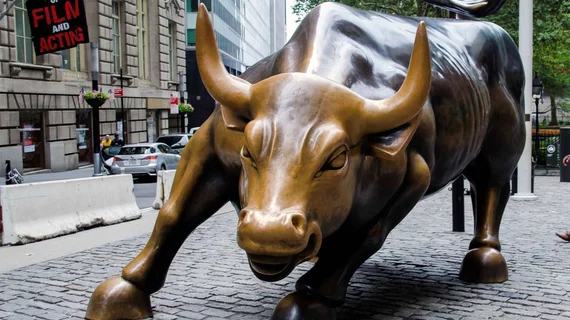Healthcare AI stocks will ‘mint the world’s first trillionaire,’ investment pro predicts
Celebrity billionaire Mark Cuban went on record in 2017 predicting the world’s first trillionaires, plural, will be individuals who master AI and apply it in ways “we never thought of.”
This week Olivier Garret, founding partner and CEO of investment research firm RiskHedge, is fine-tuning Cuban’s forecast.
Garret says a coming crop of tycoons will rise from the fertile soil of, specifically, healthcare AI.
“The fusion of AI and healthcare is one of the most lucrative opportunities I’ve come across in my entire career,” Garret writes in an opinion piece running at Forbes.com.
Garret backs up his projection with CB Insights data showing healthcare as the top industry for AI investment dollars—$4 billion spread across 367 deals. The rush represented a conspicuous spike over 2018’s numbers, $2.7 billion and 264 deals.
One market research company calculates healthcare AI will become a $31 billion sector by 2025.
“When an industry grows this fast,” Garret writes, “fortunes stand to be made.”
Wishful thinking—or incisive insight? Read the piece and decide:

